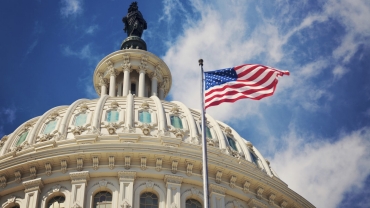
The Infrastructure Act moves forward. What does the spending plan mean for business?
Opportunities to grow and create jobs.
The $1.2 trillion Infrastructure Investment and Jobs Act (“the Act”) attempts to make a dent on the repair backlog in transport systems. It also signals a long-term federal commitment to secure and modernize existing infrastructures, and support a transition to a clean economy.
- Part of the allocation is dedicated to expanding—by thousands of miles—the grid’s high-voltage transmission-line network to facilitate delivery of renewable energy through high-priority transmission corridors. This would help the country move“ to a more integrated grid: one that could share power among regions and potentially help control electricity price volatility and shortages.
- The Act allocates $65 billion to expand high-speed internet access to rural and otherwise underserved populations across the US. Much of the investment is likely to be channeled to suppliers such as internet co-ops, regional utilities, engineering firms and wireless broadband service providers.
- The electrification of passenger cars and trucks receives a more modest $7.5 billion in funding. These funds would support the buildout of a national public electric vehicle (EV) charging network, which is crucial to meeting President Biden’s ambition that half of new car sales in 2030 are electric.
- The Act funds the office of the newly created role of National Cyber Director, who will serve as the coordinator for cybersecurity policy between federal agencies, Congress and the White House.
- Negotiations continue on a separate budget reconciliation bill, which would be used to advance other social spending priorities and climate proposals. The bill is expected to include significant tax provisions. Securing votes to pass a budget reconciliation bill could require reducing the overall cost and scope of the legislation, including scaling back some tax increase proposals.
There are a myriad of technology development incentive payments, grants and loan financing programs in the Act. Businesses should take the time to understand the scope of programs available for assistance, as well as the conditions and reporting obligations that may follow.

Dec 3
The latest on Senate passage of Build Back Better bill
Nov 19
House passes Build Back Better reconciliation bill
Additional insights on the Infrastructure Investment and Jobs Act

Modernize
Billions of federal dollars are allocated to road, bridge, rail and other modernization projects, with significant implications for businesses that depend on this infrastructure.


Decarbonize
The provisions signal that the drive toward a more sustainable economy powered by low-carbon alternatives—including wind, solar, hydropower and nuclear—is bipartisan and considered to be in the national interest.

Secure
Cybersecurity is not optional. The bipartisan deal allocated funding for governments to upgrade their networks and invest to better secure power and water infrastructures.

Fund new infrastructure
The infrastructure agreement draws on unused pandemic relief funds, strengthened tax enforcement for cryptocurrency and other offsets for funding.
Related content






© 2017 - 2026 PwC. All rights reserved. PwC refers to the PwC network and/or one or more of its member firms, each of which is a separate legal entity. Please see www.pwc.com/structure for further details.



